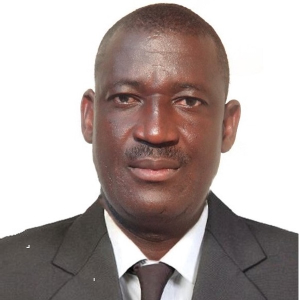Background/Objectives
South Sudan has been experiencing high levels of food insecurity and acute malnutrition with over 46% of the population projected, from September 2023 to July 2024, to be at the integrated food security Phase Classification Level 3 and above (IPC, 2023)[1]. Climate change is considered a main driver of the acute food insecurity and malnutrition. One of the impacts of climate change is unprecedented, multi-year floods that have exacerbated high levels of hunger in Fangak County in Jonglei State. Due to the low-lying topography of the area, the villages, grazing and agricultural lands have been inundated with water, resulting in losses of livestock and crops that cannot withstand the conditions. Recurrent floods have forced the Fangak community to depend entirely on relief aid, but humanitarian access constrains effective delivery of assistance with food being airdropped, sometimes in swamps, due to lack of uninhabited dry land. In addition to climate change, armed conflict and enhanced microeconomic degradation have exacerbated the situation making Fangak the most food insecure and hunger prevalent county in South Sudan. To mitigate the situation, Action Against Hunger is piloting a climate change adaptation project called “Seeds of Hope (SOH)” in Fangak County. The main objectives of SOH are to increase the adaptive capacity and climate resilience of flood affected communities, improve sustainable food production and income, and reduce climate change induced hunger.
[1] IPC-Integrated Food Security Phase Classification, 2023
Approach/Activities
SOH uses an evidence based and market focused approach to strengthen the capacity of flood affected farming communities of Fangak to sustainably reduce the negative impact of climate change on their livelihoods through the introduction and promotion of climate smart rice production activities. Key implementation activities include securing buy-ins from local and national authorities, and the engagement of key public and private stakeholders to the program; establishment of a community led Climate Smart Advisory Network (CSAN) to support and facilitate producers’ access to technical and financial services to implement climate adaptation measures to increase income; strengthening capacity on governance of the CSAN and rice producers’ aggregation; and disseminating educational messages promoting diet diversification and the adoption of climate smart rice production practices. Each participating farmer is to receive 25 kg of NERICA-L 19 rice variety after signing an agreement involving revolving fund conditions. Quantitative and qualitative data will be employed to monitor and evaluate the approach. A multivariate probit/logit will be used to determine the extent of adoption and an Endogenous Switching Regression Model will be employed to assess the level of impact.
Results/Lessons Learned
The government of South Sudan and Fangak authorities have endorsed SOH and are providing technical and logistical support to the program. The first group of early adopter farmers had an average yield of NERICA-L 19 rice of between 6.5 to 7 tons per hectare. One of the model farmers was able, using the money from the first harvest, to procure a de-watering pump from Juba. These early positive results have increased the interest of other communities to implement the SOH approach, which has been scaled up from one to six villages. Currently, about 925 farmers have registered to participate in SOH activities in Fangak. Agreements are being negotiated with potential rice buyers from Juba and the Jonglei State to purchase upcoming harvests. Expected outcomes include a more than 10-fold sustainable increase in rice production and income, which along with nutrition education, should lead to improved household food security and reduced undernutrition.
